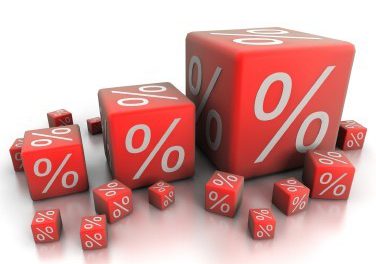Which one feature about a home is the most important as voiced by your homebuyers?
- Monthly cost of owning the home (55%, 54 Votes)
- Low crime rates (29%, 29 Votes)
- Time of the work commute (9%, 9 Votes)
- Eco-friendly (3%, 3 Votes)
- Noise levels in the neighborhood (2%, 2 Votes)
- Convenient access to grocery stores (2%, 2 Votes)
- Proximity to entertainment and night life (0%, 0 Votes)
- Close access to hospitals (0%, 0 Votes)
- Nearby public transit (0%, 0 Votes)
Total Voters: 99
Jumping off the market faster, and at a higher price — homes with environmentally conscious features make a real estate agent’s job that much easier.
The biggest motivations for eco-friendly housing are:
- lowering utility bills or operating costs;
- safeguarding the home from natural disasters; and
- minimalizing the home’s impact on the environment.
A win-win scenario for those looking to limit waste and also cut down on costs. Making energy improvements can reduce utility costs by 25% on average, according to the U.S. Department of Energy.
For sellers, homes with an official energy efficiency rating also sell for 2.7% more on average, according to a Freddie Mac study. “Going green” does bump up a resale value, but it’s also a critical practice to reduce one’s carbon footprint.
Related article:
In today’s climate (in all aspects of the word), many homebuyers are turning towards homes which are more sustainable and provide protection from environmental hazards. Thus, listings with eco-friendly features sell up to 10 days faster than equivalent listings, at a 2.4% price premium, according to Zillow.
Of course, not all features are created equally. Nationwide, homes with green home features sell 10 days faster on average, and more specifically, homes with:
- seismic retrofits sell 19 days faster;
- electric vehicle (EV) charging stations sell ten days faster;
- drought-resistant landscaping sell nine days faster;
- double-pane windows sell seven days faster;
- programmable thermostats sell six days faster;
- smart sprinklers sell five days faster;
- smart lights sell four days faster;
- tankless water heaters sell two days faster; and
- storm shelters sell one day faster.
Potential homebuyers have natural hazards on the brain while on the prowl for a home. Of today’s homebuyers:
- 55% consider flooding;
- 41% consider tornadoes;
- 35% consider hurricanes; and
- 29% consider earthquakes.
Zillow’s research is nationally focused, so it’s unlikely any California homebuyers are thinking about tornadoes or hurricanes. However, add wildfire to that list and you’ll have a better picture of how California homebuyers are weighing different natural hazards in their home purchases.
California homebuyers are wary of the risk of wildfire and earthquakes — while also conscious of water conservation efforts necessitated by drought. These are the big three natural hazard considerations for California homebuyers. Thus, any home with eco-friendly features which also address these real concerns are bound to gain the favor of Californian homebuyers.
As a younger generation swoops into the housing market, homebuyers will become more and more considerate of eco-friendly attributes for their homes. Two-thirds of young adults believe climate change will impact their homes in their lifetime, according to a Zillow survey.
The energy-conscious and environmentally savvy homebuyer is taking the stage. As saving energy comes front and center, eco-friendly features become more popular. In 2021, a whopping 67% of homebuyers found energy-saving features extremely important in their home search. This is up from 55% two years prior.
Related poll:
POLL: Do your homebuyers inquire about eco-friendly features?
Buyers want sustainable, energy efficient housing
Since eco-friendly features are top of mind for California homebuyers, these features are all vital to include in any listing or marketing materials to inform potential homebuyers or renters about the listing’s best features.
While sellers ought to consider disclosing eco-friendly features for their own benefit, there are also natural hazards sellers need to disclose to buyers. This includes:
- special flood hazard areas, a federal designation;
- potential flooding and inundation areas;
- very high fire hazard severity zones;
- wildland fire areas;
- earthquake fault zones; and
- seismic hazard zones. [Calif. Civil Code §1103(c); See RPI Form 314]
Many of these environmental risks also correlate with eco-friendly features, meaning homebuyers have double interest in eco-friendly features. To capitalize on any “green” features present, focus marketing on sustainability, reduced costs over time, and protection from natural disaster.
Check out the National Risk Index for Natural Hazards, which identifies areas most at risk, found at the Federal Emergency Management Agency website. This tool keeps clients informed about listings in any area prone to natural hazards.
Are your clients interested in homes with eco-friendly features? Has this concern become greater within the past few years? Let us know about your experience in the comments below.
Related article:



















I appreciate your posting. I’ve read about a lot of related subjects! Contrary to other articles, yours left me with a really distinct impression. I hope you’ll keep writing insightful posts like this one and others for us to everyone to read!
The designers built the home with sustainability in mind, using natural materials throughout the build in order to achieve a smaller carbon footprint, according to the listing.